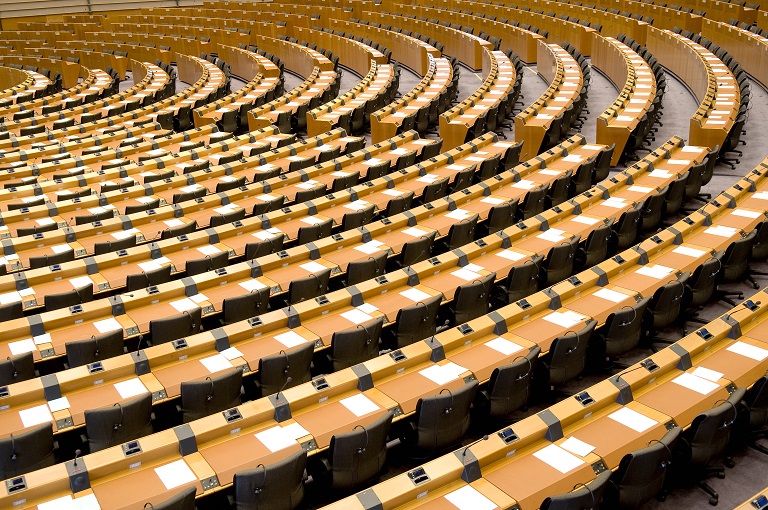EU takes legal action over failure to implement the Single-Use Plastics Directive
Published on 26th October 2022
What is the status of implementation, the perspective from France and Poland, and the announcement's impact?

The European Commission announced on 29 September 2022 that it is taking legal action against 11 EU Member States – Belgium, Denmark, Estonia, Ireland, France, Croatia, Latvia, Poland, Portugal, Slovenia and Finland – for failing to implement the provisions of the Single-Use Plastics Directive (SUPD).
Potential fines
The 11 Member States could face fines for not transposing legislation on single-use plastics. The SUPD was introduced to tackle the impact of plastic waste on the environment by introducing restrictions on 10 of the most commonly found single-use plastics. The SUPD entered into force on 3 July 2019, and Member States had two years to transpose the legislation into national law.
Initially, 16 EU Member States were issued with letters of formal notice in January 2022, but five of the cases were closed as necessary measures were taken. However, the Commission found that nine Member States – Belgium, Estonia, Ireland, Croatia, Latvia, Poland, Portugal, Slovenia and Finland – had still failed to complete transposition of the SUPD and, therefore, took the next step in the infringement procedure by issuing reasoned opinions. These Member States now have two months (until 29 November) to respond and take necessary measures to comply, or they risk a referral of their case to the Court of Justice of the European Union and could face financial sanctions.
Denmark and France had claimed, after receiving the initial letters, that complete transposition had been completed, but subsequent analysis by the Commission found that some provisions of the SUPD were still missing from their national legislation. They have now been issued with letters of formal notice and also have two months to remedy the situation. If they are unsuccessful, the Commission will likely issue reasoned opinions against Denmark and France.
The French perspective
In France, single-use plastic packaging is regulated not only by the transposition of the SUPD but also through national laws and extended producer responsibility (EPR) obligations introduced by the Waste Framework Directive.
France has set ambitious targets for the reduction of single-use plastic packaging, often going over and above what is required by the SUPD; this includes a ban on new single-use plastic packaging placed on the French market from 2040 and a requirement that new plastic packaging is made of 100% recycled plastic from early 2025.
Measures that are already in place include incremental bans on the use, manufacture and distribution of certain plastic packaging and plastic bags. Obligatory disposal and sorting information, which also goes beyond that required by the SUPD, must also be communicated to consumers by featuring specific symbols (for example, the Triman logo) on the packaging itself. Businesses with placing plastic packaging on the French market today must pay an annual contribution to one or several eco-organisations in charge of the collection and treatment of packaging waste.
The transposition of the SUPD in France is, therefore, already quite advanced. As a result, and bearing in mind that the letter of formal notice issued by the Commission mostly concerns adequate regulation of plastic fishing gear and associated waste, the French compliance measures are not anticipated to have a significant impact on businesses in other sectors.
The Polish perspective
The SUPD is not yet transposed into Polish law, so Poland is lagging behind other EU Member States. In October 2022, the Polish Ministry for Climate and Environment published an updated draft law implementing SUPD which is expected to be presented to the Polish parliament shortly to be reviewed and passed.
The October 2022 draft shows that Poland's single-use plastic (SUP) law will implement all material regulations of the SUPD, including a ban on placing certain single-use plastic products on the Polish market, labelling, public education campaigns, separate collection of bottles and the introduction of EPR obligations (whereby companies placing certain single use products on the Polish market will need to pay an annual fee). In parallel to its SUPD implementation efforts, the Polish government is also working on a draft deposit return scheme for plastic bottles and new EPR law that will materially change the Polish scheme for packaging that is already in place.
The SUP draft also proposes dates when obligations on businesses will kick in. For example, from 1 July 2024, it will be forbidden to place single use beverage containers made of plastic on the Polish market if the caps and lids are not tethered to the container. However, many obligations are scheduled to come into force on 1 January 2023 – subject to the SUP law being passed before then.
With the draft SUP law still making its way through the legislative process, it is not clear whether it will be passed by the Polish Parliament before the end of 2022. If it is, and assuming the deadline of 1 January 2023 is not pushed back, it will give businesses a very short time in which to make final preparations.
The "yellow card" from the Commission may speed up the legislative process, encouraging the SUP law to be passed and come into force before 1 January 2023.
Osborne Clarke comment
The action taken by the Commission will be an incentive for the affected EU Member States to ensure full transposition of the SUPD is completed within a short period of time. Businesses located within EU Member States where provisions of the SUPD are yet to be implemented will be keeping a watchful eye on the outcome of any draft legislation or guidance and will need to respond with agility to ensure continued compliance.
This insight was produced with the assistance of Charlie Hennig, Knowledge Executive.
If you would like any assistance on this, please contact one of our experts below.






